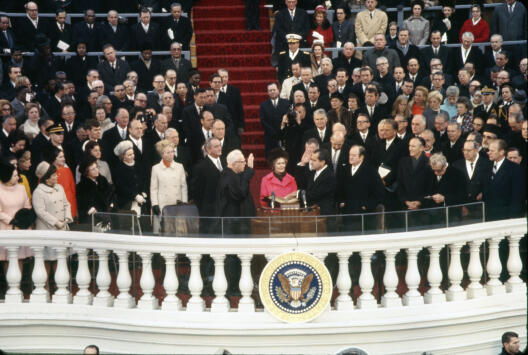Historisches Seminar
Prof. Dr. Heike Bungert
Chair for Modern and Contemporary History/North American History
Current research projects
"Dynamics and Tradition: German Immigrants and Religious Plurality in the U.S. in the 19th Century"
Project C3-8 within the framework of the Cluster of Excellence "Religion and Politics. Dynamics of Tradition and Innovation" (since 2019)
In the context of the debate on the „refugee crisis" and the supposed „islamization" it is worthwhile analyzing how Germans emigrating to the USA during the second half of the nineteenth century coped with the religious plurality they encountered there. German immigrants not only found themselves face to face with people of different faiths from their home country or even "freethinkers", but also with a - confusing - variety of mostly Protestant denominations.
The research project aims to examine how, between approx. 1830 and 1900, German parishes, synods, or dioceses in the U.S. perceived this "novel" religious plurality within their ethnic group and in the country in general and how they reacted to it. The focus will be on Catholics and Lutherans, the latter divided into a multitude of German-speaking Protestant synods due to theological differences, regional dispersion, ethnic unity, or openness towards US-American influences. Another group to be examined are German Methodists."God Bless America": Inaugurations of U.S. Presidents
Book project.
Inaugurations were seen by many Americans as important moments, as “one of those great occasions that capture the imagination of all of the American people”, as “peculiarly American”. The aim of the book project is to write the first academic history of inaugurations of U.S. presidents from 1789 to the present day, however focusing on the period from 1929 to 1993. On the one hand, inaugurations and their main elements are looked into from an operational and organizational point of view, and with regard to how they developed over time. However great the importance of tradition, emphasis is put especially on the growth of the inaugurations in terms of length and scope of the ceremonies as well as in terms of the number of participants. This concerns the gradual inclusion of women, ethnic minorities and religious groups, but also the possibility of reaching a larger audience through new media. On the other hand, the author analyzes the civil-religious elements that serve the peaceful transfer of power, the legitimization of the new president, the formation of identity and the unification of the country after the election campaign, but which were also used to reevaluate the role of the United States.
© Nixon Library Public Domain The Lager Beer Revolution in the United States: The History of Beer and German-Americans as a Reinvention of Ethnicity, Knowledge, and Consumption
Habilitation project of Dr. Jana Weiß
The project analyses the technological and cultural transfer of the “German art of brewing” to the United States. It covers the beginning of the 19th century, when German-style, bottom-fermented beers were first introduced until national prohibition in 1920, when the production, sale, and transport of alcohol over 0.5 vol.-% was legally banned. The focal point of the project is the transfer of the brand beer understood as a (re)invention of ethnicity, knowledge, and consumption, i. e. as a differentiated geographical, technological, and socio-cultural exchange process of ethnic brewing traditions. By building upon (transnational) studies in the field of (German-)American immigration, consumption history, and the history of knowledge and technology, the project is based on case studies in three regions: the Midwest (Wisconsin, Missouri, Ohio), the east and west coast (New York, California).
History of Intellectual Culture (HIC). International Yearbook of Knowledge and Society (zusammen mit Johan Östling und Charlotte A. Lerg)
New international, interdisciplinary open access yearbook published by De Gruyter.
Completed research projects
Die Indianer. Geschichte der indigenen Nationen in den USA
Monography. Published by C.H. Beck on August 27, 2020. 2nd edition 2021.
The history of the American Indians begins around 16,000 years ago. With the arrival of the Europeans in the 15th century, however, everything changes for the native peoples on the North American continent. Heike Bungert, one of the leading German experts in the ethnic history of North America, has written a competent account based on the latest research that keeps away from romantic clichés and instead focuses on the active role of the American Indians.In this overall presentation, Heike Bungert describes the history of the indigenous cultures of North America, the encounter between the American Indians and the European Americans, the expulsion and the attempt to destroy indigenous societies, but also the resistance of the American Indians. Special attention is paid to the coexistence between the U.S. as a state and the members of the native peoples, which has always been and continues to be difficult.
Festkultur und Gedächtnis: Die Konstruktion einer deutschamerikanischen Ethnizität, 1848-1914
Monography. Published by Schöningh, 2016.
German migrants in the United States celebrated a lot and savored it. Through various festivals they developed a German-American ethnicity and an independent ethnic memory. This book does not only present the – so far – most comprehensive overview of the large German-American celebrations ranging from singing festivals and festivals of gymnastic clubs, sharpshooting clubs or workers' associations to fairs, Schiller celebrations, regional anniversaries, and "German Days". Heike Bungert also shows how the memory of the migrants changed over time and how they dealt with the diversification of their interests. In addition, the author examines the impact of conflicts such as the American Civil War and the Franco-German War, but also the influence of growing U.S. patriotism and Wilhelmine "world politics". Last but not least, the book illustrates how a number of individual ethnic memories evolved into a single ethnic memory over time.Completed research projects (DFG-funded)
1. Project C2-3 "The Transcendental Creation of Community in a Multi-Religious Society: The U.S. from 1945 to 2005" in the Cluster of Excellence 212 „Religion and Politics in Premodern and Modern Cultures" (2012 - 2017)
The project analyzes the civil-religious elements and their changes in inaugurations of US-American presidents and election campaigns. Particularly, the project will investigate how transcendental community was achieved by civil religion. The chronological focus will be on the beginnings of the Cold War, the 1960s and early 1970s, and the rise of the Christian right; the project will close with the first ramifications of 9/11 and the reelection of George W. Bush.
Project leader:
Prof. Dr. Heike Bungert, „Zivilreligion in Inaugurationen US-amerikanischer Präsidenten, 1945-2005“ (Civil Religion in inaugurations of US-American presidents, 1945-2005)
Project staff:
Ulrike Stedtnitz, M.A. “The Strangers in our Midst“: Evangelicals and Immigration, 1950s–2000s (AT)
Linda Lieke, Student Research Assistant
2. Project C9 „Symbolische Kommunikation und gesellschaftliche Werte in panindianischen Bewegungen“ („Symbolic Communication and Social Values in Panindian Movements“) in the SFB 496 (Collaborative Research Center 496) „Symbolische Kommunikation und gesellschaftliche Wertesysteme vom Mittelalter bis zur Französischen Revolution“ („Symbolic Communication and Social Value Systems from the Middle Ages to the French Revolution (2009 - 2012)
The project investigates the role of symbolic communication in building and maintaining pan-Indian coalitions and organizations in the North American colonies and the United States. It wishes to analyze how symbolic communication enabled ethnic groups to create consensus across cultural and geographical borders, and which social values these symbols reflected in transitional periods at the threshold of an ambivalent, conflicted, non-European modernity.
Project leader:
Prof. Dr. Heike Bungert: „Die zivilgesellschaftliche panindianische Organisation Society of American Indians, 1911-1923“ (The Civilian, Panindian Organization Society of American Indians, 1911-1923)
Project staff:
Michael Schlütter, M.A.: „Die religiös-militärischen panindianischen Koalitionen, 1760-1815“ (The Religious-Military Panindian Coalitions, 1760-1815)
Marcel Filmar, Student Research Assistant
3. Project B12 „Religion und ‚Civil Religion’ in US-amerikanischen patriotischen Feiertagen, 1945-1990/92“ („Religion and ´Civil Religion´ in U.S. Patriotic Holidays, 1945-1990/92“) in the Cluster of Excellence „Religion and Politics" (2009-2011)
The project analyzes the religious and political elements in recurring U.S. holidays and special anniversary celebrations, changes between 1945 and 1992, their characteristics in different regions, and possible conflicts of interpretation. The project seeks to define the role of civil religion more precisely and to develop a definition of civil religion appropriate for historians, one that allows for different versions of civil religion and that understands the concept no longer as normative-prognostic, but as analytic.
Project leader:
Prof. Dr. Heike Bungert, „Religion und ‚Civil Religion’ in US-amerikanischen patriotischen Feiertagen, 1945-1990/92: Die einmaligen Jubiläumsfeiern“ (Religion and Civil Religion in U.S. Patriotic Holidays, 1945-1990/92: One-Time Anniversaries and Jubilees)
Project staff:
Jana Weiß, „Religion und ‚Civil Religion’ in regelmäßig wiederkehrenden US-amerikanischen patriotischen Feiertagen, 1945-1990/92“ (Religion and Civil Religion in Regular U.S. Patriotic Holidays, 1945-1990/92)
Tobias Henze, Student Research Assistant

